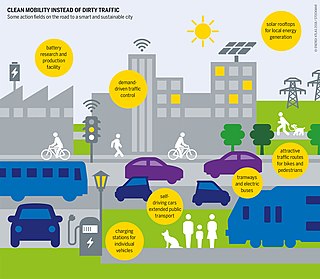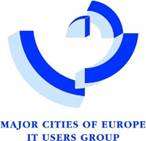
Mass surveillance is the intricate surveillance of an entire or a substantial fraction of a population in order to monitor that group of citizens. The surveillance is often carried out by local and federal governments or governmental organizations, but it may also be carried out by corporations. Depending on each nation's laws and judicial systems, the legality of and the permission required to engage in mass surveillance varies. It is the single most indicative distinguishing trait of totalitarian regimes. It is often distinguished from targeted surveillance.
Center for Democracy & Technology (CDT) is a Washington, D.C.-based 501(c)(3) nonprofit organisation that advocates for digital rights and freedom of expression. CDT seeks to promote legislation that enables individuals to use the internet for purposes of well-intent, while at the same time reducing its potential for harm. It advocates for transparency, accountability, and limiting the collection of personal information.

Sir Geoffrey John Mulgan CBE is Professor of Collective Intelligence, Public Policy and Social Innovation at University College London (UCL). From 2011 to 2019 he was chief executive of the National Endowment for Science Technology and the Arts (NESTA) and visiting professor at University College London, the London School of Economics, and the University of Melbourne.

The Directorate-General for Communications Networks, Content and Technology is a Directorate-General of the European Commission and is responsible for European Union investment in research, innovation and development of critical digital technologies.
Social innovations are new social practices that aim to meet social needs in a better way than the existing solutions, resulting from - for example - working conditions, education, community development or health. These ideas are created with the goal of extending and strengthening civil society. Social innovation includes the social processes of innovation, such as open source methods and techniques and also the innovations which have a social purpose—like activism, crowdfunding, time-based currency, telehealth, cohousing, virtual volunteering, microcredit, or distance learning. There are many definitions of social innovation, however, they usually include the broad criteria about social objectives, social interaction between actors or actor diversity, social outputs, and innovativeness. Different definitions include different combinations and different number of these criteria. Transformative social innovation not only introduces new approaches to seemingly intractable problems, but is successful in changing the social institutions that created the problem in the first place.

European Digital Rights is an international advocacy group headquartered in Brussels, Belgium. EDRi is a network collective of non-profit organizations (NGO), experts, advocates and academics working to defend and advance digital rights across the continent. As of October 2022, EDRi is made of more than 40 NGOs, as well as experts, advocates and academics from all across Europe.

A smart city is a technologically modern urban area that uses different types of electronic methods and sensors to collect specific data. Information gained from that data is used to manage assets, resources and services efficiently; in return, that data is used to improve operations across the city. This includes data collected from citizens, devices, buildings and assets that is processed and analyzed to monitor and manage traffic and transportation systems, power plants, utilities, urban forestry, water supply networks, waste, criminal investigations, information systems, schools, libraries, hospitals, and other community services. Smart cities are defined as smart both in the ways in which their governments harness technology as well as in how they monitor, analyze, plan, and govern the city. In smart cities, the sharing of data is not limited to the city itself but also includes businesses, citizens and other third parties that can benefit from various uses of that data. Sharing data from different systems and sectors creates opportunities for increased understanding and economic benefits.

Beth Simone Noveck is the 1st Chief Innovation Officer of New Jersey, Director of the Burnes Center for Social Change at Northeastern University, and Director of The Governance Lab. She is also affiliated faculty with the Institute for Experiential AI. She is the author of Solving Public Problems: How to Fix our Government and Change Our World, Smart Citizens, Smarter State: The Technologies of Expertise and the Future of Government, Wiki Government: How Technology Can Make Government Better, Democracy Stronger, and Citizens More Powerful, and co-editor of the State of Play: Law and Virtual Worlds.

Maria Renske "Marietje" Schaake is a Dutch politician who served as Member of the European Parliament (MEP) from the Netherlands between 2009 and 2019. She is a member of Democrats 66, part of the Alliance of Liberals and Democrats for Europe Party.
Atomium – European Institute for Science, Media and Democracy (EISMD) is an international non-profit organisation based in Brussels. The Institute convenes European universities, media, global businesses, governments and policymakers to develop innovative initiatives and frontier thinking based on scientific evidence to provide evidence-based analysis and advice in governmental and decision-making processes.

Michelangelo Baracchi Bonvicini is president of Atomium - European Institute for Science, Media and Democracy, which was launched together with former French President Valéry Giscard d'Estaing on 27 November 2009 at the European Parliament.

Sonia Livingstone is a leading British scholar on the subjects of children, media and the Internet. She is Professor of Social Psychology and former head of the Department of Media and Communications at the London School of Economics and Political Science. While Livingstone’s research has evolved since the start of her career in the 1980s, her recent work explores media and communication in relation to society, children and technology. Livingstone has authored or edited twenty-four books and hundreds of academic articles and chapters. She is known for her continued public engagement about her research areas and has advised the UK government, European Commission, European Parliament, UN Committee on the Rights of the Child, OECD, ITU and UNICEF, among others, on children’s internet safety and rights in the digital environment. In 2014, Livingstone was awarded the title of Officer of the Order of the British Empire (OBE) "for services to children and child Internet safety".

Mariana Francesca Mazzucato is an Italian–American-British economist and academic. She is a professor in the Economics of Innovation and Public Value at University College London (UCL) and founding director of the UCL Institute for Innovation and Public Purpose (IIPP). She is best known for her work on dynamics of technological change, the role of the public sector in innovation, and the concept of value in economics. The New Republic have called her one of the "most important thinkers about innovation".

The Major Cities of Europe IT Users Group is an independent association of chief information officers, IT managers and department heads of cities. The group was founded in 1982 as a result of an initiative by the Greater London Council. Since then it has focused on innovation in cities, driven by information and communications technology.

"Fourth Industrial Revolution", "4IR", or "Industry 4.0" is a buzzword and neologism describing rapid technological advancement in the 21st century. The term was popularised in 2016 by Klaus Schwab, the World Economic Forum founder and executive chairman, who says that the changes show a significant shift in industrial capitalism.
The Smart Nation is an initiative by the Government of Singapore to harness infocomm technologies, networks and big data to create tech-enabled solutions.

Giorgio Pacifici is an Italian sociologist.
The Malta Information Technology Agency is a Maltese government agency under the Office of the Prime Minister. MITA manages the implementation of IT programmes in Government to enhance public service delivery and provides the infrastructure needed to execute ICT services to Government. MITA is also responsible to propagate further use of ICT in society and economy and to promote and deliver programmes to enhance ICT education and the use of ICT as a learning tool.
A data economy is a global digital ecosystem in which data is gathered, organized, and exchanged by a network of companies, individuals, and institutions to create economic value. The raw data is collected by a variety of factors, including search engines, social media websites, online vendors, brick and mortar vendors, payment gateways, software as a service (SaaS) purveyors, and an increasing number of firms deploying connected devices on the Internet of Things (IoT). Once collected, this data is typically passed on to individuals or firms, often for a fee. In the United States, the Consumer Financial Protection Bureau and other agencies have developed early models to regulate the data economy.
Government by algorithm is an alternative form of government or social ordering where the usage of computer algorithms is applied to regulations, law enforcement, and generally any aspect of everyday life such as transportation or land registration. The term "government by algorithm" has appeared in academic literature as an alternative for "algorithmic governance" in 2013. A related term, algorithmic regulation, is defined as setting the standard, monitoring and modifying behaviour by means of computational algorithms – automation of judiciary is in its scope. In the context of blockchain, it is also known as blockchain governance.












